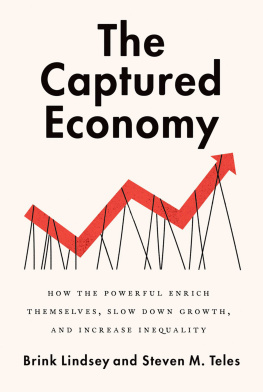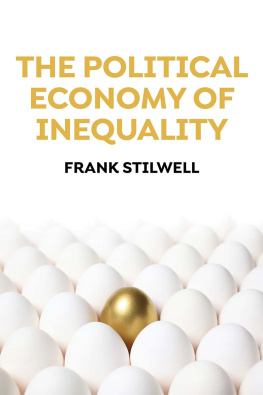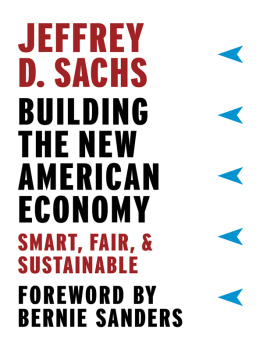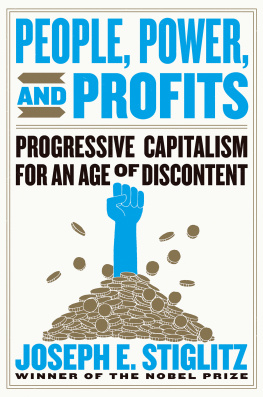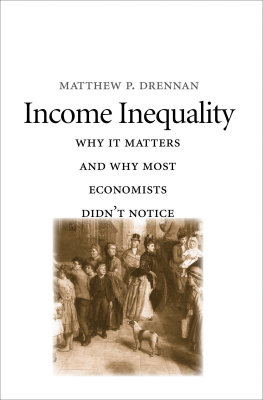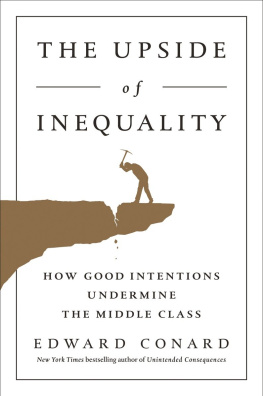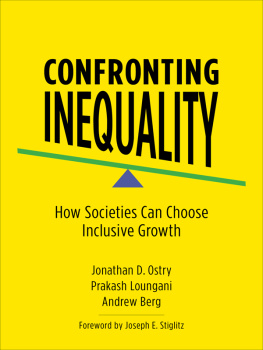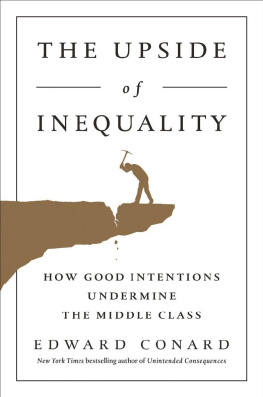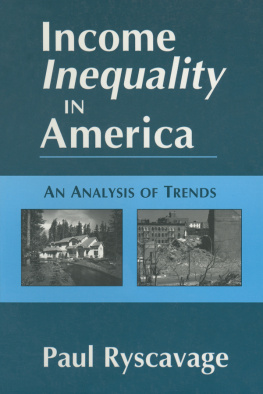THE CAPTURED ECONOMY

THE CAPTURED ECONOMY
How the Powerful Enrich Themselves, Slow Down Growth, and Increase Inequality
BRINK LINDSEY AND STEVEN M. TELES


Oxford University Press is a department of the University of Oxford. It furthers the Universitys objective of excellence in research, scholarship, and education by publishing worldwide. Oxford is a registered trade mark of Oxford University Press in the UK and certain other countries.
Published in the United States of America by Oxford University Press
198 Madison Avenue, New York, NY 10016, United States of America.
Oxford University Press 2017
All rights reserved. No part of this publication may be reproduced, stored in a retrieval system, or transmitted, in any form or by any means, without the prior permission in writing of Oxford University Press, or as expressly permitted by law, by license, or under terms agreed with the appropriate reproduction rights organization. Inquiries concerning reproduction outside the scope of the above should be sent to the Rights Department, Oxford University Press, at the address above.
You must not circulate this work in any other form and you must impose this same condition on any acquirer.
Cataloging-in-Publication data is on file at the Library of Congress
ISBN 9780190627768
eISBN 9780190627782
CONTENTS
Many people helped us to write this book. Here we want to single out a few of them for special thanks.
Steve would like to recognize Steven Rhoads, who first taught him to think like an economist (as well as when not to). Special thanks are due to the Kauffman Foundation, and Steves program officer there, Dane Stangler, for their very generous support of the research on the rent-seeking society that went into this book. Steve would also like to thank Fawzia Ahmed, for a multi-decade conversation on inclusive growth (yes, we are in fact paying for inequality!), and for more recent discussions on the broader lessons of philanthropy and school reform. Mike Lind may not agree with much of what is in this book, but his support for Steves writing on kludgeocracy is a major influence on this books argument. Frank Baumgartner and Terry Moe will find their influence all over the arguments made here on how concentrated interests get their way in American politics. And Yuval Levin of National Affairs edited and published articles by Steve on kludgeocracy and upward redistribution that led to the writing of this book.
Brink would like to thank Peter Goettler and David Boaz at the Cato Institute for their support of this project. He is especially grateful for being allowed to spend much of the time he took to write this book in Thailand while waiting for his wifes visa application to be approved. He is indebted to his Cato colleagues Mark Calabria, Jeff Miron, and Peter VanDoren for reading various draft chapters and providing valuable feedback. Will Wilkinson and Ryan Avent also read parts of the manuscript and offered helpful insights. And Brink wants to thank his wife Meaw for her indispensable dual role as muse and refuge from the frustrations of writing.
Both of us want to thank David McBride of Oxford University Press, who was, as usual, as good an editor as any authors have a reason to hope for. We are grateful to Lee Drutman for allowing us to use parts of his article with Steve in Washington Monthly, and for his critical commentary on various drafts of the book. Finally, Dean Baker gets our sincere appreciation, not just for reading draft chapters, but for clearing the intellectual path for the argument we make in these pages.

Do these numbers mean that the American dream is dead? Perhaps not, but reports of its demise are not too greatly exaggerated. Because of a combination of slowing growth and rising inequality, the prospect of upward mobility and a brighter future is now receding out of reach for more and more of our fellow citizens. As a result, American democracy is weakening as well, as pessimism and frustration have smashed public trust in established institutions and opened the path to power for populist demagoguery.
The rise of income and wealth inequality, driven especially by rapid gains at the top, is one of the most widely discussed phenomena of recent economic life. Thomas Piketty and Emmanuel Saez have famously estimated that the share of total income accounted for by the top 1 percent of earners has doubled from 8 percent in 1979 to 18 percent in 2015while the share of the top 0.1 percent has quadrupled from 2 percent to almost 8 percent over the same period.gains for most Americans have been struggling just to keep pace with inflation.
Likewise, the dismal performance of the US economy since the financial crisis of 200709 has been painfully obvious to all. Normally, severe recessions beget rollicking recoveries, but not this time: the Great Recession, the worst downturn since the Great Depression, has been followed by the slowest recovery since World War II. As the malaise persists, evidence is accumulating that the growth slowdown reflects deep structural problems that predate the crisis.
The combination of slowing growth and rising inequality has inflicted a double whammy on Americans economic prospects. The growth slowdown means that expected progress in living standards has evaporated; high inequality means that just looking at GDP growth understates the magnitude of popular economic discontent, as the gains of growth have shifted away from ordinary Americans to benefit a relatively narrow elite.
The damage done by our economic malaise is not confined to the economic realm. The shocking election of Donald Trumpand the threat to liberal democratic norms and institutions that it entailscould only have happened in a country where confidence in the nations leaders and governing institutions had sunk to dangerously low levels. And the failure of economic governance to deliver broadly shared prosperity is a major reason for that collapse in confidence.
There is a well-established link between economic downturns, such as we are now experiencing, and rising levels of intolerance, racism, and political extremism. When people feel economically insecure, they grow more defensive, less open and generous, and more suspicious of the Other. When life seems like a zero-sum struggle, gains by other groups are interpreted as losses by ones own group.
Trumps supporters may have had relatively higher incomes, because they were overwhelmingly Republicans, and Republicans generally earn more than Democrats. But it is a low rate of growth, rather than a low level of income, that triggers authoritarian impulses. And Trumps strongest supporterswhite men, especially those without college degreeshave experienced the slowest income growth in recent decades, lagging behind women, blacks, and Hispanics.
It should be no surprise that a demagogue like Donald Trump was able to exploit conditions like these. And the multiplying successes of illiberal parties and political movements in Europe suggests that the appeal of his brand of demagoguery might not be short-lived. So long as mainstream elements in the Republican and Democratic parties are unable to offer effective economic governance, voters will continue to be easily swayed by the siren song of populist authoritarianism.

